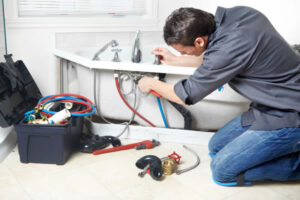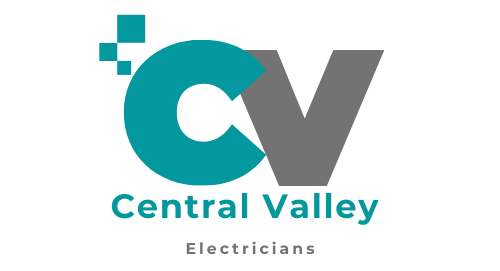Plumber Woodland Hills install and repair plumbing fixtures in homes. They are also responsible for promoting water-saving practices that help families cut down on their energy bills and reduce waste.
Detecting leaks and fixing problems in a home is more straightforward than in a commercial space. For instance, snaking a drain line in a high-rise building is more complicated than doing it in a single house.
Many people may not think much about the kind of plumber they hire, assuming that any kind will do as long as they can fix a leaky faucet or clogged drain. However, plumbing is a specialty trade that requires special training in order to install, maintain, and repair piping, fixtures, and appliances. There are two major categories of plumbing: residential and commercial.
A residential plumber works on a variety of plumbing systems, focusing mostly on pipes and fixtures in a home setting. They usually spend the majority of their time doing repairs and maintenance, but they are also responsible for new installations. This includes determining the locations of water system connections and piping, installing fixture and appliance piping, and completing aboveground rough-in construction.
In order to become a residential plumber, individuals must complete extensive technical training as well as on-the-job experience. Trade organizations offer apprenticeship programs for those interested in learning the trade. These programs are typically three months long and require participants to attend class on a weekly basis. In addition to classroom work, apprentices must spend a significant amount of their time performing job-related tasks under the supervision of a licensed master plumber.
Residential plumbers must also be familiar with local plumbing codes and regulations in order to properly perform their duties. In addition, they must be able to read blueprints and build specifications in order to correctly make a layout for piping and installations. Other job responsibilities include inspecting plumbing installations, testing pipes for integrity, and ensuring that all work meets standards.
A commercial plumber focuses on plumbing systems in large commercial spaces such as malls, office buildings, restaurants, warehouses, and more. These spaces are often used by hundreds of people at once, which means that they need to have more complex and advanced plumbing systems in place to manage all of the usage. In addition, commercial spaces often have stricter rules and requirements regarding plumbing, such as more rigorous inspections and specified work hours for plumbers. If you’re looking for a career that’s challenging, rewarding, and exciting, commercial plumbing might be right for you.
Maintenance
When your plumbing system experiences problems, you want a plumber who knows how to address them quickly and efficiently. Residential plumbers are trained to service and repair plumbing systems in existing homes as well as new construction. This includes fixing leaks, identifying issues with water pressure, clearing drain clogs, and making sure all fixtures function properly.
A good plumber will also keep a customer in the loop throughout the process, providing honest advice and updates on how long each task is expected to take. This ensures the customer has an accurate idea of what to expect and allows for any changes to the initial plan if necessary.
Plumbing companies often get their reputations through word of mouth. It’s important to choose a company with a solid track record of positive reviews from past clients. When looking for a plumber, ask friends and family members about their experiences with different companies, and look for online review sites to read both positive and negative stories from others in your community.
Commercial plumbers work with larger public systems and are responsible for the plumbing systems of large buildings like schools, hospitals, shopping centers, and those connected to industrial equipment. These systems can be more expansive than residential plumbing and require a different skill set to maintain and repair.
Repair
Residential plumbers work on plumbing systems that carry water into homes and out of them, as well as fixtures that take waste away. They repair leaks, broken pipes, clogged drains, and more. Plumbers can also install new plumbing to accommodate appliances like sinks, toilets, and bathtubs. They may also work on heating and cooling systems. Plumbers must have the skills to read blueprints and construction specifications to properly install new pipes and plumbing fixtures. They also must be able to use welding, soldering, and brazing equipment to assemble pipe sections, tubing, and fittings.
A residential plumber often works on emergency repairs for homeowners, too. This means they might have to make service calls in the middle of the night or during a holiday. This can be stressful for homeowners, but it’s important for the plumber to remain professional and explain what caused the problem and how they plan to fix it.
Because they deal directly with customers in their clients’ homes, residential plumbers need to have excellent customer service skills. They must be able to answer questions about how the plumbing system works and provide education about the solution they’ve provided. This is especially true for septic tank and sewer line repair, as most people are unfamiliar with these types of systems.
In addition to installing, repairing, and maintaining plumbing systems in residential settings, some plumbers specialize in commercial work. This type of work involves larger buildings with more complex plumbing systems than homes. Commercial plumbers often work on large office spaces, malls, hospitals, restaurants, and other business facilities. This type of plumbing is more involved than residential work, as it involves a higher volume of usage and sometimes requires working with multiple floor levels.
A residential plumber is usually more experienced than a commercial plumber. This is because they usually have more on-the-job training and have worked in the field for longer periods of time. However, there are some similarities between the two types of plumbing. Both work on installations and repairs, but the differences in usage and size between commercial and residential systems can make some jobs more complicated than others.
Replacement
When it comes time to replace pipes, a residential plumber is the best person for the job. They are familiar with the layout and structure of homes and can easily find the right places to replace old or damaged pipes. They are also knowledgeable about the latest tools and technology to help speed up the installation process.
When choosing a residential plumbing company, make sure they offer 24/7 emergency service. You never know when you’ll have a problem, and it’s important to be able to get assistance as soon as possible. Also, look for a company that offers revolving lines of credit. This is an excellent option if you want to pay for your plumbing project in installments rather than all at once.
Keep in mind that you’ll likely be living in a construction zone for some time if the entire house needs to be replumbed. This means there will be noise, holes in the walls, and dust. It’s important to be prepared for this and to take steps to protect your belongings, such as moving valuables and covering furniture. You should also expect to have the water turned off for several days during the work. This will require you to make other arrangements for drinking water and washing clothes.
